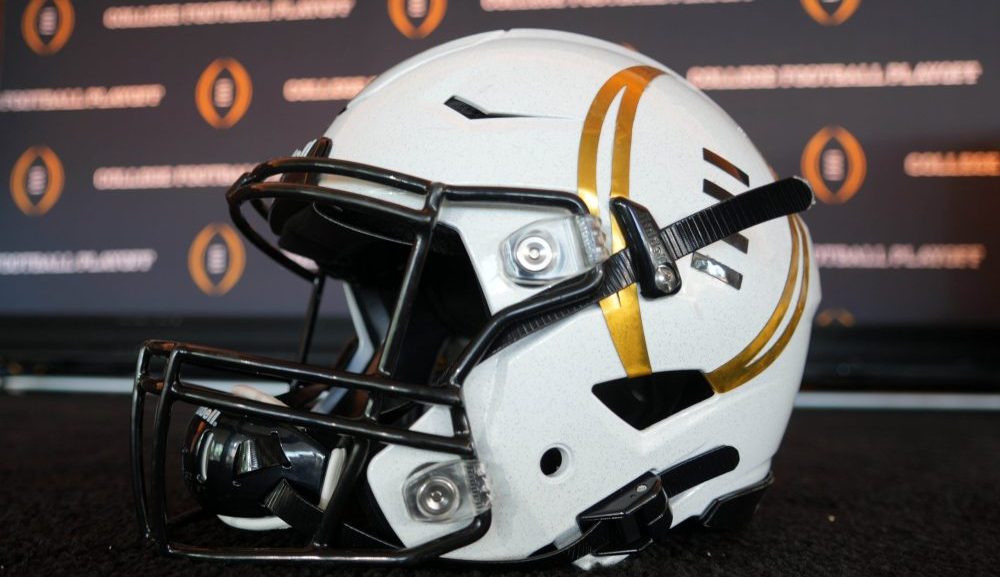
An often-recurring element of the Twitter age in sports is the discussion of what parts of an athlete's life are public and private, and that debate is back in the limelight this week thanks to what happened at Penn State's infamous State Paddy's Day parties Saturday. PennLive reporter Anna Orso was there to cover the events and the police and school reactions to them, but she wound up stumbling into a sports story thanks to seeing hotly-touted freshman quarterback Michael O'Connor stagger and fall and hearing him say that Nittany Lions head coach James Franklin "doesn't know shit." She reported that on Twitter, and that created significant backlash against her from both Penn State players and fans, as well as reignited a debate over what a reporter's role is and what should be reported. First, her tweets:
I just saw Michael O'Connor and Antoine White walking down Beaver Ave. O'Connor could hardly stand, fell into the street, was almost hit.
— Anna Orso (@anna_orso) March 1, 2014
When White told O'Connor to calm down so coach doesn't find out, he responded "Franklin doesn't know sh–."
— Anna Orso (@anna_orso) March 1, 2014
Orso then took flak from Penn State players and fans, with receiver DaeSean Hamilton tweeting "DELETE THIS" at her (a post he's since deleted) and calling her, plus O'Connor tweeting "what are you talking about" at her (which he's since deleted). The fan feedback was even more vitriolic, with many directing explicit sexual taunts at Orso. Here are some of the worst fan responses:
@anna_orso you're just made cause they didn't wanna bang you
— Chazz Reinhold (@bigwillystyle78) March 2, 2014
saw @anna_orso in a gangbang behind the Skeller. Told she should stop before Chris Mautner finds out. Replies Mautner doesn't know shit
— Pocono Lion (@PoconoLion) March 2, 2014
.@anna_orso I see you are contributing well to @PennLive's jihad against PSU football. Wtf is your problem?
— John Rutter (@JRutter21) March 2, 2014
.@anna_orso I hate to sound like a thug on Twitter, but you should probably get hit by a car for tweeting this
— Ross Silver (@rsilver_22) March 1, 2014
Comments like those are obviously indefensible, but do those who criticized Orso's reporting have a point? From this corner, no, not really. The first angle to consider here is how she got the information; she heard and saw this by being present in a public location while working on another story. There would be more of a complaint if she had been specifically assigned to follow football players around in hopes they'd slip up, but that doesn't appear to be the case.
The next question to consider is what Orso did with the information, and critics could potentially make a case that this isn't newsworthy. There could be a debate there if all she was reporting was that O'Connor (who's 17, so very underage) was staggering around; some would argue that football players' conduct in public is notable, some would argue that no one cares about underage drinking. It's notable that journalists are not police officers, and that they and their outlets are not obligated to report all illegal activity they witness (for example, seeing someone speeding usually isn't a newsworthy story). Moreover, news pieces on campus parties in particular often don't identify the individuals involved. However, things change when the subject is notable. For example, reporting on one man's Saint Patrick's Day party in 2012 usually wouldn't be worthwhile, but it is when that man is the mayor of Toronto. O'Connor isn't quite that notable, but there's a case to be made that how Penn State's potential future starting quarterback acts in public is well worth discussing.
What really makes this newsworthy are O'Connor's comments about Franklin, though. A player publicly insulting his head coach would be notable in general, but this is particularly interesting coming from O'Connor, as he lobbied for the Nittany Lions to hire Franklin in the first place. (O'Connor, a Canadian-born quarterback who's been attending Florida's IMG Academy, committed to Penn State under Bill O'Brien, contemplated reopening his recruitment after O'Brien left, told Bleacher Report's Tim Tolley Franklin "would be a great hire for Penn State" and then recommitted to the Nittany Lions once they hired Franklin.) Yes, no one should put too much stock in one player's apparently-intoxicated comments (in vino veritas doesn't always hold true), but having a high-profile recruit and one who'd pushed for Franklin say that suggests that perhaps the Franklin era isn't off to as smooth a start as it could be. That certainly seems worth talking about.
The real takeaway here for college athletes, though? First, the perils of social media services like Twitter (which Michigan State basketball coach Tom Izzo discussed eloquently a few weeks back) aren't limited to just what you write or what you read. Twitter makes it much easier for anyone to share a story, so athletes and other high-profile figures have to be aware that the world is often listening (especially in public places). Moreover, on the media side, the unlimited space (and low effort required, and low per-post minimum characters) of Twitter allows reporters to send out information that might have been a smaller story, a sidebar or not printed at all in another era, and the reaction that comes in to those tweets can expand the story. Dumb comments are far more likely to be publicized now.
That's not to say that athletes can no longer expect any privacy. If they're hanging out in private residences with their teammates and friends, their comments probably aren't ever going to see the light of day (and if they do, that's about who they hang out with). If they're at a bar, it gets a little more iffy as anyone can be listening, but you're probably not going to see too many media outlets reporting on what athletes say in bars unless something really goes wrong. Making notable dumb comments audibly while walking down the street, though? That certainly sounds like fair game. The players and fans blasting Orso here really don't appear to have much to build a case on, but even if they did, you can argue that their actions still wouldn't really be helping their program. What would probably help more? How about everyone learning to be more careful with what they say?







